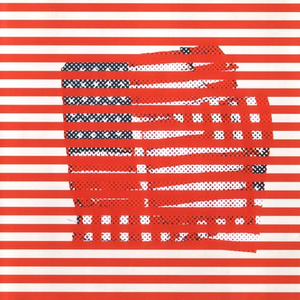Zoek artiesten, songs en albums op in onze database.
- Beacons Of Ancestorship
- High Class Slim Came Floatin' In
- Prepare Your Coffin
- Northern Something
- Gigantes
- Penumbra
- Yinxianghechengqi
- The Fall Of Seven Diamonds Plus One
- Minors
- Monument Six One Thousand
- de Chelly
- Charteroak Foundation
- Tortoise
- Magnet Pulls Through
- Night Air
- Ry Cooder
- Onions Wrapped in Rubber
- Tin Cans & Twine
- Spiderwebbed
- His Second Story Island
- On Noble
- Flyrod
- Cornpone Brunch
- Millions Now Living Will Never Die (1996)
- Djed
- Glass Museum
- A Survey
- The Taut and Tame
- Dear Grandma and Grandpa
- Along the Banks of Rivers
- TNT (1998)
- TNT
- Swung From the Gutters
- Ten-Day Interval
- I Set My Face to the Hillside
- The Equator
- A Simple Way to Go Faster Than Light That Does Not Work
- The Suspension Bridge at Iguazú Falls
- Four-Day Interval
- In Sarah, Mencken, Christ, and Beethoven There Were Women and Men
- Almost Always Is Nearly Enough
- Jetty
- Everglade
- Standards (2001)
- It's All Around You (2003)
- It's All Around You
- The Lithium Stiffs
- Crest
- Stretch (You Are All Right)
- Unknown
- Dot/Eyes
- On the Chin
- By Dawn
- Five Too Many
- Salt The Skies
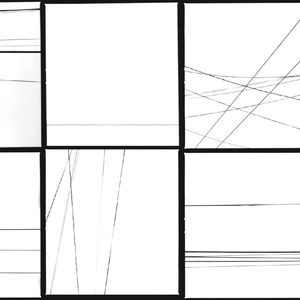
Tortoise released their latest album Beacons of Ancestorship on June 23, 2009. Read more on Last.fm.
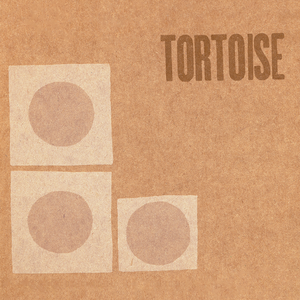
Tortoise's self-titled debut incorporates many musical styles and influences and combines them into one very distince sound. So distinct that sometime after the release of this record they became recognized as the leaders of a new musical movement. Tortoise exploits the recording studio, in that they utilize the recording process as a compostional tool or "sixth member", thus creating a boundless parameter in which to create music. Recorded at Idful Studios by John McEntire. Read more on Last.fm.

Tortoise's production expertise hit an early peak with Millions Now Living Will Never Die, a work that not only references studio-centric forms like dub and electronica, but actively welds them to the group's aesthetic of sturdily constructed indie rock. The centerpiece is the 21-minute opener "Djed," a multi-part track which brought Tortoise's already impressive compositional abilities to a grand scale. It's almost a history of influences in miniature, first referencing tape music and dub for several minutes, then moving on to Krautrock with a chugging section incorporating wheezing organ and understated guitar chords. Halfway through, the band takes on minimalism with repeating figures of organ and vibes, then return to the green fields of their debut with a final few minutes of moody indie rock (though even this is spiced with a scratchy rhythm and various noise effects). With "Djed," Tortoise made experimental rock do double duty as evocative, beautiful music. The other songs on Millions Now Living are hardly afterthoughts, though; highlights "Glass Museum" and "The Taut and Tame" display the band quickly growing out of the angular indie rock ghetto with exquisite music, constructed with more thought and played with more emotion, than any of their peers. Read more on Last.fm.
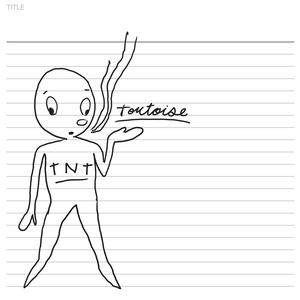
Expected by many to continue leading the post-rock brigade into a new fusion with dub and electronics, Tortoise instead turned yet another corner with their third album, TNT. Adding guitarist Jeff Parker to cement their musicianship as well as their connections to Chicago's fertile jazz/avant-garde scene, the band returned with a record of post-modern cool jazz, only slightly informed by the dub, Krautrock, and electronics of Millions Now Living Will Never Die. It shows from the first few seconds -- a lazy, slightly free drum solo frames a few tentative guitar chords and some teased effects, before the band kicks in with a holds-barred jam that encompasses a tremulous solo from trumpeter Rob Mazurek. With engineer/mixer/drummer John McEntire and company adding only a few post-production frills to the mix -- and those so complementary and subdued that they rarely even sound like effects -- TNT comes off as a surprisingly organic record. The evocative Spanish-style guitar on "I Set My Face to the Hillside" plays over an assortment of playground sounds, while "The Suspension Bridge at Iguazú Falls" deconstructs a classically angular Tortoise groove and re-emerges with an evocative, deeply affecting groove over shimmering vibes and precision guitar lines. There are plenty of nods to post-rock touchstones like Krautrock ("Swing From the Gutters"), dub, and minimalism ("Ten-Day Interval"), but Tortoise hardly sounds like a difficult band here. Instead of forcing studio experimentation to become an end to itself, the band mastered -- with a single, deft statement -- the far more difficult lesson of making technology work for the music. Read more on Last.fm.
Revered for their ineffably clean, precise playing, Tortoise couldn't help but mess with the formula slightly on their fourth album, Standards. And from the beginning of the first track it sounds like a major overhaul, with heavily over-miced drums and distorted guitars framing a pummeling groove from bassist Doug McCombs. On the second track "Eros," the phlegmatic synthesizer lines and clipped drums are more reminiscent of experimental electronica outfit Mouse on Mars than any fellow post-rock luminaries. When the band finally hits its stride, though, midway through the third track, "Benway," it's with a quintessential Tortoise groove, driven by repetitive bass figures and a vibraphone melody (plus a hilarious nod to prog-rock at the end, with several seconds of stop-start playing). Standards does return the group to the green fields of their last record, but only occasionally; John McEntire and company appear too restless to consider making the same album twice. Ironically, despite the range of sounds, Tortoise is still doing what they've been doing for nearly a decade: playing some of the most empathic, group-minded rock of their era, then indulging in much recomposition courtesy of the mixing desk and various effects. "Monica" is one of the least Tortoise-sounding tracks the group has ever recorded; it sounds like an early-'80s pop/R&B track (complete with talkbox guitar) filtered through the lens of British IDM, but then mutates into an intriguing stereo-separation drum workout. Overall, Standards has a few detours for fans conscious of any band's "progression," but plenty of interesting songs and great musicianship for less vested listeners. Though it doesn't develop the evocative or impressionistic side of Tortoise (as heard on TNT), the band is certainly as inventive as ever. Read more on Last.fm.
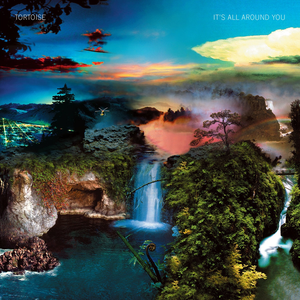
Studio album by Tortoise ReleasedApril 6, 2004 GenrePost-rock, experimental rock, jazz fusion Length43:52 LabelThrill Jockey ProducerJohn McEntire Read more on Last.fm.
